Rechargeable Hearing Aids
Considering rechargeable hearing aids? Learn all about their benefits and why they can be a great choice for your hearing needs!
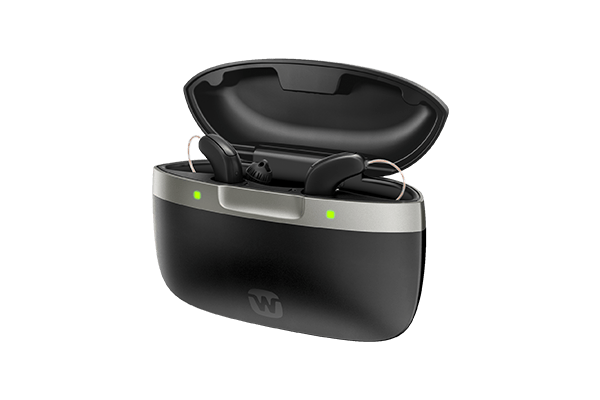
With today’s advanced technology, hearing aids now come with two battery options: rechargeable and non-rechargeable. In the past, rechargeable batteries struggled to keep up with the energy demands of modern features like wireless connectivity, audio streaming, and hands-free phone calls.
However, the introduction of powerful lithium-ion batteries has changed the game. These rechargeable batteries now last longer than ever and are found in most high-end hearing aids, making them an increasingly popular choice for convenience and performance.
Benefits of Rechargeable Hearing Aids
With rechargeable hearing aids, there’s no need to fumble with tiny batteries or worry about running out of power at an inconvenient time. Simply charge your hearing aids overnight or during downtime, and they’re ready to go when you are! It’s as easy as charging your phone – just place them in their charging case, and you’re set for the next day!
While rechargeable hearing aids may have a higher initial cost, they save you money over time. Since you won’t need to buy disposable batteries every few weeks, you’ll recoup the investment quickly. Plus, the convenience of not having to replace batteries frequently adds to the value, making them a smart long-term choice.
Rechargeable hearing aids come with compact charger packs that are perfect for travel. Many are small enough to fit in the palm of your hand or your pocket, ensuring you always have reliable power on the go without the hassle of carrying spare batteries.
Without the need for a bulky battery compartment, rechargeable hearing aids are designed to be smaller and more discreet. Their sleek, lightweight design means they sit more comfortably in or behind the ear, and they’re less noticeable to others. This makes them ideal for anyone looking for a more subtle hearing solution.
Our Range of Rechargeable Hearing Aids
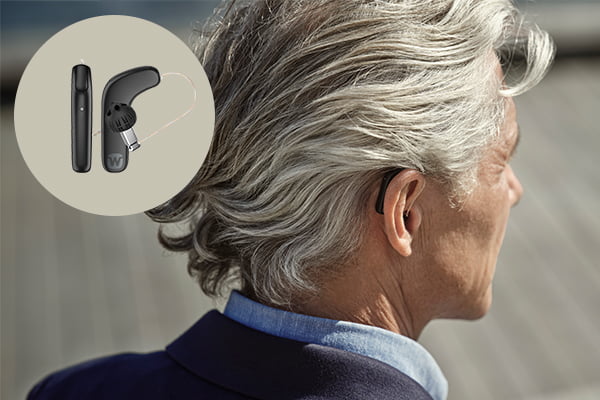
Widex SmartRIC
Discover the Widex SmartRIC, the latest marvel in hearing technology designed to keep you connected and hearing precisely what you want to hear. Its innovative L-shaped design, positioned higher on the ear, ensures clarity in conversations, even in bustling environments. With SmartRIC, every interaction becomes more meaningful, allowing you to feel more engaged in life’s moments.
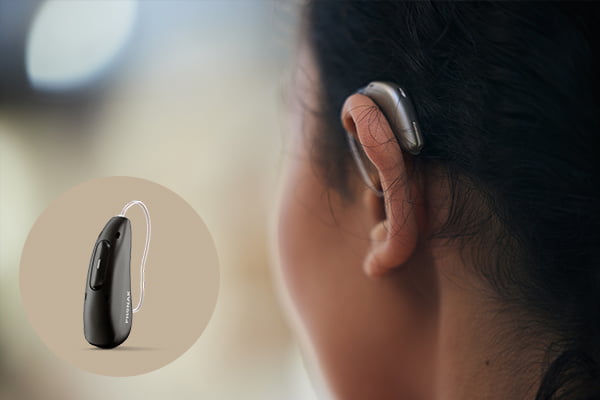
Phonak Audéo™ Infinio
Experience exceptional sound quality and comfort from the very first use with Audéo Infinio. Equipped with groundbreaking technology that redefines the boundaries of hearing care, Phonak Infinio lets you hear the world with clarity and confidence. Embrace life’s most meaningful moments.
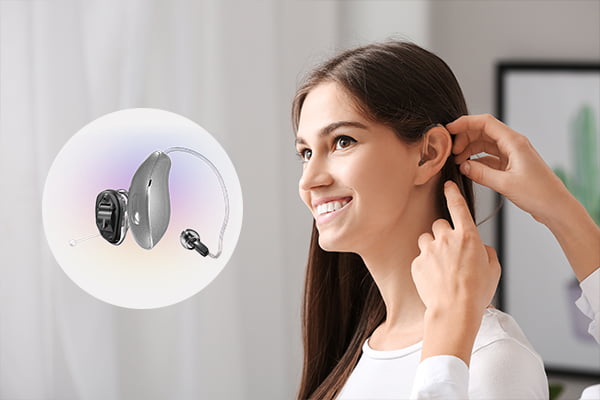
Starkey Genesis AI
Genesis AI by Starkey heralds the most significant advancements in hearing technology, offering an extraordinary hearing experience that’s as unique as life itself.
Oticon Intent™
Discover Oticon Intent™, the rechargeable hearing aid designed to bring you closer to the world around you. With the revolutionary miniRITE form, Intent™ seamlessly integrates with your life, providing a 360° sound experience. It’s equipped with groundbreaking sensors that detect your listening intentions, giving you the power to stay fully engaged in every conversation.
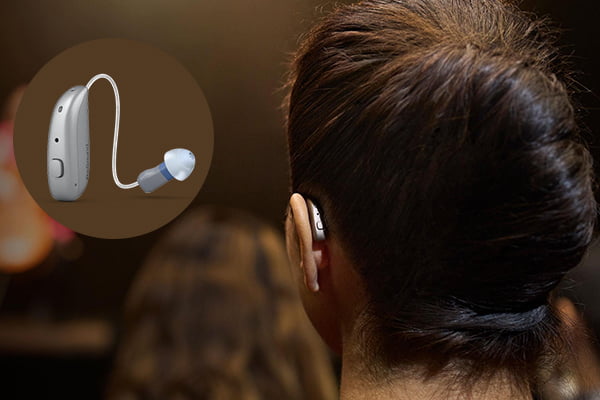
ReSound Nexia
Step into a world where hearing technology meets the cutting edge of design with ReSound Nexia. Engineered for the discerning listener, Nexia is more than a hearing aid – it’s a gateway to a new dimension of sound, offering unprecedented connectivity and control.
Quick Guide to Recharging Your Hearing Aids
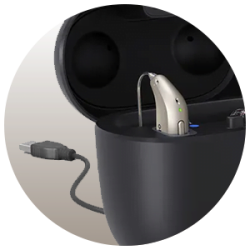
Power Up the Charger
Connect your hearing aid charger to any power source using the included cable to ensure a reliable charge.
Place Your Hearing Aids in the Charger
Carefully position your hearing aids inside their designated slots, and they’ll start charging automatically thanks to innovative wireless technology.
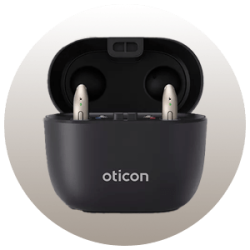
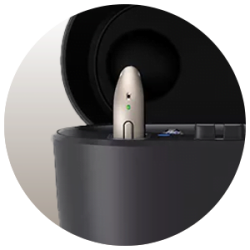
Track Power Level
Keep an eye on the LED indicator lights on your hearing aids to monitor the charging status – your aids will be ready once the lights signal a full charge.

Our Range Of Hearing Aids
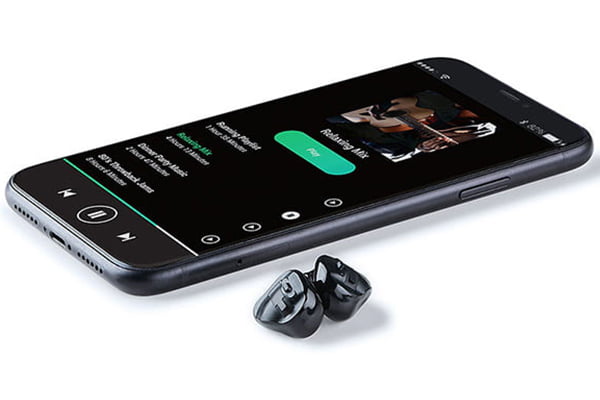
Bluetooth Hearing Aids
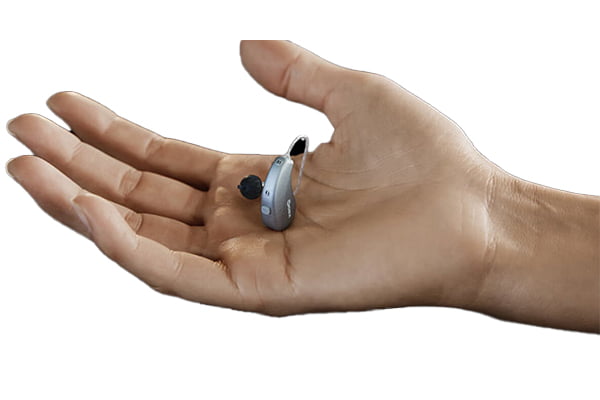
Interest Free Plans Available

Choosing Hearing Aids
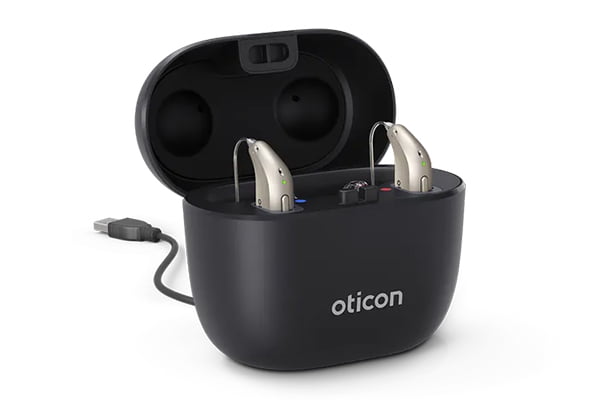
Rechargeable Hearing Aids

20% Off Purchase Only
Frequently Asked Questions
How do rechargeable hearing aids work?
Rechargeable hearing aids use built-in lithium-ion batteries that are charged through a docking station or USB cable, much like charging your phone. Simply place the hearing aids in their charger overnight or during downtime, and they’ll be ready for use the next day.
How long do rechargeable hearing aid batteries last?
Rechargeable hearing aids with lithium-ion batteries can last up to 24-30 hours on a single charge, depending on the model and features used (like streaming or Bluetooth). Most devices need to be charged overnight to be ready for the next day. The battery itself can last several years before it needs replacing, generally matching the lifespan of the hearing aid.
What rechargeable hearing aid is right for me?
The right rechargeable hearing aid for you depends on your specific hearing needs and lifestyle. If you require advanced features like Bluetooth connectivity or directional microphones, higher-end models from brands like Phonak, ReSound, or Oticon may be ideal. Our expert audiologists can guide you through the options to find the best fit.
Are rechargeable hearing aids better?
Rechargeable hearing aids are more convenient and environmentally friendly than traditional hearing aids, especially if you prefer not to deal with constantly replacing batteries. However, the ‘better’ option really depends on your personal preferences. If you value convenience and cost savings in the long term, rechargeable hearing aids may be a better choice for you.
What are the differences between traditional and rechargeable hearing aids?
Traditional hearing aids rely on disposable batteries that need to be replaced regularly, while rechargeable hearing aids use built-in batteries that are recharged each night. Rechargeable hearing aids eliminate the need to handle small batteries, making them more convenient, especially for those with limited dexterity. Additionally, they tend to be more compact and discreet due to the lack of a battery compartment.
Are rechargeable hearing aids worth it?
Yes! Rechargeable hearing aids are worth it for many people, especially those who value convenience and eco-friendliness. While they might have a higher upfront cost, you’ll save money on disposable batteries over time, and the ease of use makes them highly practical. They also reduce the hassle of battery replacements, making daily use smoother and simpler.
What are the disadvantages of rechargeable hearing aids?
One of the disadvantages of rechargeable hearing aids is that if you forget to charge them, you may be left without power. However, most chargers are portable, and many hearing aids can go 24-30 hours on a full charge, so this is rarely an issue. Additionally, the built-in batteries do wear out after several years, but they can be replaced as needed.